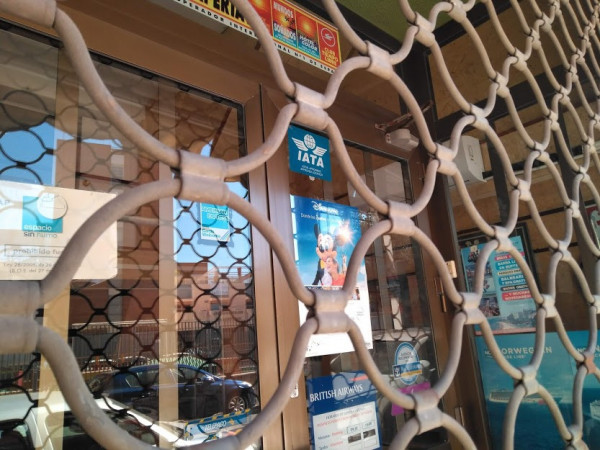With the economic catastrophe caused by the COVID-19 crisis in the tourism sector due to the stoppage of activity, various package travel organizers have already begun to emerge that have been forced to declare bankruptcy, including companies such as Trapsatur, Politours or Pullmantur Cruises. Faced with this situation, the Business Federation of Territorial Associations of Spanish Travel Agencies (FETAVE) is informing its associates of the It is mandatory that the European Union establishes that these travel organizing companies have insurance that covers possible insolvencies, and that the client must claim reimbursements directly from the insurance company. “The travel agency cannot go directly to the insurer, it has to be the client. Travelers can claim directly from the insurer with which they have this compulsory insurance the amount of the ticket, the cruise or the combined trip they have purchased” , explains César Gutiérrez, president of FETAVE. (See The Pullmantur bankruptcy will affect more than 150,000 passengers, according to the OCU, Pullmantur Cruises presents bankruptcy and Pullmantur: administrators seek to advance viability).
–
FETAVE advises its retailers especially in the case of Pullmantur, currently the largest ever. The company is currently in bankruptcy, which implies an alteration in the order of preference of the debts to reimburse travelers. “This situation comes to us from the retail agencies that have sold Pullmantur”, Gutiérrez explains.
“Especially with regard to its cruise division, it can affect about 65,000 travelers with a reimbursement amount of about 50 million euros”, details the Federation
Retail agencies face an already delicate situation, with their staff in ERTE and without receiving income, To which is now also added the extra effort to attend to the claims of these clients.
A travel agency.
–
“In the end who face to the customer are the agents of these retailers, who do not have the money, since they gave it to Pullmantur. And many of these agencies are being bullied, with a lot of paperwork and bureaucracy, “the president of FETAVE alludes to the changes made by the operator regarding its refund policy.
In this situation, the federation is reminding its associates of the existence of this compulsory insurance by law, which travelers can use directly.
“What we want is to take a little pressure off all retailers so that they know that there is a formula which is to go to insurance”, Gutiérrez details
What does this insurance cover? According to FETAVE, as the regulations are, the company must have this guarantee insurance against the insolvency of the operator, with the identification of the insurance company with which the insurance is contracted and to whom travelers should go to make their reimbursements effective immediately.
“At first the insurer would have to pay everything, I would have to reimburse the full amount “, Gutiérrez points out.
The COVID-19 crisis, in addition to dynamiting the sector, has collapsed all kinds of bureaucratic procedures. In this situation, is the insurer actually paying? From FETAVE they clarify that they do not know what customers are doing.
“We receive the information about what happens from the retailers, but we do not know later what the travelers do, if there are many who are claiming that money or if it is being easy or difficult,” Gutiérrez points out.
Likewise, from the federation they warn that as the health crisis continues in 2021, forecasts indicate that demand will not reasonably recover before 2023, which added to the lack of aid to the sector will cause the fall of many other tourism companies, something which will have an effect “on the rights of travelers and will strain the relationship of retailers with their purchasing customers of those package tours, to which they will not be able to reimburse the amounts transferred to the operators “.
Faced with these foreseeable bankruptcies, the federation calls on the agencies to pass on to their clients the information about the existence of these insurance guarantors of their reimbursements.
Eleven months without income
Travel agencies, the sector hardest hit by the pandemic for being more than eleven months with practically no income, lead “with more than 60%, the percentage of workers in ERTE and also the recovery of ERTE workers, with only 12% “, figures worse than those of other sectors such as hotels, hotels and air transport, according to FETAVE data.
In this sense, the sector has on numerous occasions demanded from the administration a specific rescue plan for these companies, which includes non-repayable aid or a 0% interest credit program as applied by Germany, France or Italy.
– .


